What effect will robotics developments have on warehouse workers?
For decades there has been talk of autonomous robotics taking over elements of our lives. As technology develops the capacity for machines to take over what were previously considered difficult manual labour jobs is increasing. Is that such a good thing, however? Are there any benefits of warehouse workers that could make them even more valuable than machines?
Increasing technology developments
Technology systems are developing all the time. Everything from overarching warehouse management systems to machines that can sort, pick, and pack orders are seeing increasing use. On the face of it you may think that they offer the perfect solution. Computers don’t make mistakes after all. They don’t object to working exceptionally long hours, they don’t require pay, they don’t need breaks of any kind, and they offer a consistent level of efficiency even during periods of intense consumer demand. These are all very true, and for certain business owners these benefits are enough to make them seriously consider phasing out human workers wherever possible.
The downsides of robot infrastructure
Machinery doesn’t have all the answers, however. While the aforementioned benefits are definitely compelling, there are some potential drawbacks to be mindful of too. The first is that systems are under a constant state of development, and even the most sophisticated and heavily-trialled software can still experience crashes and malfunctions. Something else that prevents many business owners adapting more is sheer cost. The technology is still relatively new, and as such it carries a heavy capital investment requirement over and above what many businesses can afford. You not only have the purchase price to factor in remember, but you will also have ongoing maintenance and repair costs too.
The benefits of keeping human workers
Warehouse operators require some level of critical thinking, and while artificial intelligence and learning computers are getting better than ever the truth is that they’re still nowhere near humans. Your skilled workers can process developing situations and determine a suitable response in mere moments, where a machine could be completely stuck when presented with the same set of circumstances. Remember that machines can only respond in line with the way they are programmed, and if they’re presented with circumstances they are not expecting it can lead to problems. As humans we have thousands of years of situational awareness and development in our favour when it comes to thinking on our feet.
Something else to think about is that humans can be easier to train in certain respects. Granted a machine can process calculations we could never dream of doing in our heads. But by the same token it would take a fraction of the time to teach a person to use and operate a forklift as it would to establish an autonomous system that was reliable. This means that for many business owners humans are still the foundation of their logistical force because we’re much better suited to adapting to our environment and our circumstances.
Which is the right approach for you?
There’s no right or wrong answer when it comes to this sort of question, there’s only what’s best for your business. For most business owners they will find that the best solution lies in a happy medium. Where possible it’s a great idea to implement technology for labour-saving and efficiency reasons. Where slightly more complex skills such as forklift driving are required however, it’s difficult to improve on what a human workforce offers.
There is also a wider economic question that still remains unanswered. There’s a large pool of workers potential facing upheaval from their jobs as they are replaced by machines – where do they go, and what do they do? If automation becomes the default choice for business owners, that’s going to mean an ever-swelling group of unemployed people who no longer have viable employment opportunities. This is another reason why a pragmatic approach is required that instead seeks to benefit from both human and machine workplace contributions wherever possible.
Working with quality equipment and expertise
As mentioned, humans still have the edge when it comes to operating certain warehousing equipment such as forklifts and load trucks. At Radnes Services Ltd we’re specialists in the provision of all manner of essential logistics equipment to industry professionals. Everything from forklifts to pallet trucks and all points in between can be procured from our friendly, helpful, and experienced staff.
Whether you’re looking to invest in a forklift for your business, you want to hire a forklift to temporarily meet an ongoing need, or you want to ensure that your operatives benefit from industry-leading training Radnes Services Ltd can help. We’re specialists in everything relating to manual handling equipment hire, sales, and training, with a dedicated team of professionals always available to assist you.
We offer a range of services designed to suit your needs. Whether you’re looking to begin your career as a forklift operator and you want to make sure you invest in quality training, or you’re a business owner looking for a flexible forklift hire contract, we can help.
For more information on our services, don’t hesitate to contact Radnes Services Ltd today.

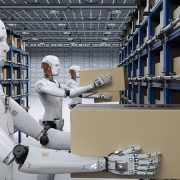
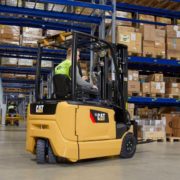
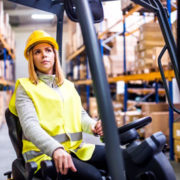
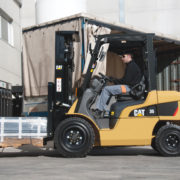

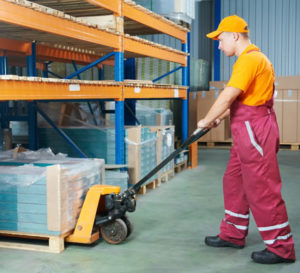
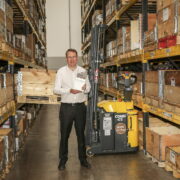
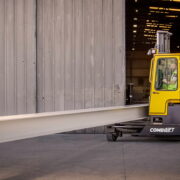

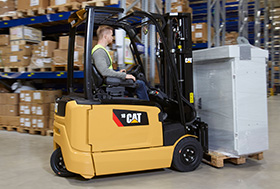 In the last few decades, electric propulsion has been the focus of huge amounts of investment and development, and for many good reasons. Electric cars are becoming more sophisticated, advanced, and affordable but it isn’t just personal and public transport that stands to benefit from the voltage revolution, as industrial vehicles and machinery like forklifts and counterbalance trucks are also prime candidates for electrification – but precisely what are the benefits for the manufacturer and, most importantly, for you the customer? How do these new models compare to more conventional diesel and LPG-powered forklifts, and what can they be used for?
In the last few decades, electric propulsion has been the focus of huge amounts of investment and development, and for many good reasons. Electric cars are becoming more sophisticated, advanced, and affordable but it isn’t just personal and public transport that stands to benefit from the voltage revolution, as industrial vehicles and machinery like forklifts and counterbalance trucks are also prime candidates for electrification – but precisely what are the benefits for the manufacturer and, most importantly, for you the customer? How do these new models compare to more conventional diesel and LPG-powered forklifts, and what can they be used for?